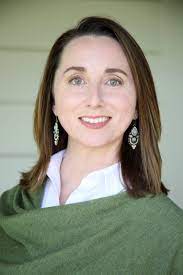Remembering and Re-membering: A New Year's Examen
Jan 13
/
Savoy Stevens

We have just come through the roller-coaster of the winter holidays. November through January can be the most wonderful time and the most tumultuous time of the year. Ending with the great page turn as we enter another yet-to-be-written 365-day span of life.
This is a great time to pause to gain perspective through remembering, and “re-membering.” Remembering as in recalling the past 365 days, and re-membering as in the opposite of dismembering; putting back together that which is fragmented and out of place.
This kind of intentional remembering and re-membering was an ancient spiritual practice of the Israelites. They continually recalled what God had done for them, where they had fallen short in loving and obeying in order to deepen their worship and commitment to God.
Their practice was an intimate, connected review as they recounted specific events in their history with celebration or repentance during festivals and observances ordained by God. These regular times of looking back were meant to transform them, deepening their faithfulness to God moving forward. The invitation and exhortation to look back applies to all God's people past and present.
And so, the turning of the new year marks a change of pace, an opportunity to look back and remember the year with gentleness as we carefully re-member the parts of our lives that are fragmented, worn and/or torn apart. We hold these pieces before God with honesty, noting all that has occurred and inviting the wholeness that comes with surrender and rest.
I have found the practice of Examen to be a particularly helpful form of remembering and re-membering. Using a few of the questions below, we can with gratitude meaningfully look back on our year and reflect on the movement of God in our lives.
As you read over the list below, listen for the inviting question(s) that draw you to reflect on the past year. Write out your response to the question(s) that you are most drawn to.
What gave me the most joy this year?
What gave me the least joy?
When did I most sense God?
When did I least sense God?
What am I most thankful for?
What am I least thankful for?
What is important to God about my year?
Where was I grateful?
Where did I err?
What are the feelings I had?
Have I noticed God’s presence in any of this?
What is my response to God’s presence?
Where did I step out in faith, take a risk for God? Or did I do this at all?
How did God stretch me this year?
What have I surrendered to God? What am I still clinging to?
What got me curious about God? What questions did I ask God? What did God ask me?
What am I most grateful for from 2019?
What am I least grateful for?
Where/when did God surprise me?
What spiritual practice helped me experience God?
How have I loved? What have I learned about love?
Once you have finished writing, choose the features of your year that held the most weight and imagine putting them into the hands of God.
What pieces of your life and/or your being need to be re-membered? Re-member recalls the past, in the context of the present, in order to inform the future. Lift them up to God’s light and let this lead you into a time of prayer - be it a time of dialogue, silence, or both whatever seems appropriate for your spirit.
Conclude with a gesture of gratitude.
Peace be with you as you step into the pages of a new year. I hope this exercise is helpful for you. May you remember God’s goodness and faithfulness and “re-member” the various parts of your life into God’s wholeness.

Savoy Stevens
Savoy Stevens, M.Div. is a spiritual director and minister in the Bay Area. She holds a Master’s of Divinity, with a concentration in Spiritual Formation from Portland Seminary and was trained, supervised, and certified as a spiritual director through George Fox University. Her postgraduate coursework includes Interfaith Studies at the University of Wales, Trinity Saint David. Savoy practices spiritual direction from an ecumenical, non-denominational perspective, welcoming directees from all faith traditions. She approaches direction sessions with curiosity and acceptance, listening deeply for the resonance of the Divine in the grit of everyday life. She asks questions and offers her undivided attention as a reflective tool for increasing your sense of the Divine. She considers spiritual direction a radical act of resistance in a culture consumed with certainty, overexposure, and noise.
Savoy Stevens, M.Div. is a spiritual director and minister in the Bay Area. She holds a Master’s of Divinity, with a concentration in Spiritual Formation from Portland Seminary and was trained, supervised, and certified as a spiritual director through George Fox University. Her postgraduate coursework includes Interfaith Studies at the University of Wales, Trinity Saint David. Savoy practices spiritual direction from an ecumenical, non-denominational perspective, welcoming directees from all faith traditions. She approaches direction sessions with curiosity and acceptance, listening deeply for the resonance of the Divine in the grit of everyday life. She asks questions and offers her undivided attention as a reflective tool for increasing your sense of the Divine. She considers spiritual direction a radical act of resistance in a culture consumed with certainty, overexposure, and noise.

